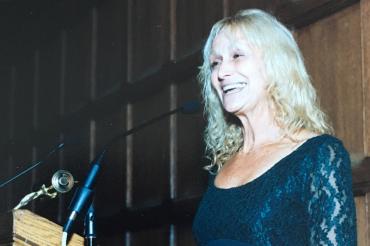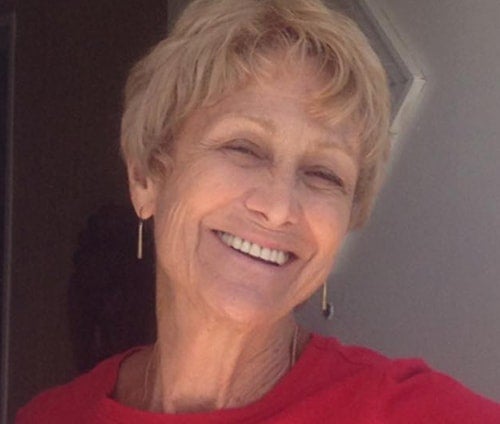Helen Stephanie Rosenthal: Mathematician who loved to teach and was active in faculty association

Published: January 5, 2018
Helen Stephanie Rosenthal was a skilled teacher whose mathematical acumen and commitment to equality and social justice led her to become an active and influential member of the University of Toronto Faculty Association.
Rosenthal, who taught thousands of students as a math instructor at U of T Scarborough, died on Aug. 19 of pancreatic cancer. She leaves her three sons Alan, Jeffrey and Michael, and three grandchildren.
Over more than two decades at the university, Rosenthal guided undergraduate students – including many who were majoring in management and economics – through the minefields of calculus and other mathematics subjects. “She was an extremely good teacher and was much loved by her students,” said her former colleague John Friedlander, a University Professor in mathematics at U of T Scarborough who occasionally worked with Rosenthal team-teaching math courses.
Another colleague, Eric Moore, an associate professor, teaching stream, worked with Rosenthal on summer math classes, where he would do the lectures and she handled the tutorials. “I’d take her above anyone else to do the tutorials,” he said. “She was excellent at the teaching ... and got very high reviews.”
Moore also played tennis with Rosenthal and other colleagues in a regular Friday get-together. “She was a pretty decent tennis player.”
Rosenthal was a key participant in the faculty association, where she served for years on its elected council, as well as on committees and negotiating teams. After retiring, she served as a retiree representative on the council.
Rosenthal often applied her math skills to her faculty association work when it was needed. University Professor Emeritus Peter Russell recalled serving on a negotiating team with Rosenthal during a late-night set of talks with the university at a downtown hotel. “It looked like we had a deal,” he said. “I was just fighting sleep, but Helen looked at [the documents] and found an actuarial mistake in the calculations. We all thought, ‘Gosh, we want to go home, but we better trust Helen.’ They went back and looked at her corrections, and they agreed she was right.”
“She wasn’t just a mathematician. She saw the bigger picture as well. She was always a very strong advocate of justice,” Russell said.
Rosenthal’s mathematics skills were highly valued by policy-development teams as well as negotiating teams at the association, said Cynthia Messenger, associate professor, teaching stream in the department of English and the current president of UTFA. “She was very skilled with the complexities of the numerical and financial features of policies and contracts.”
Rosenthal was a quiet but firm campaigner on behalf of the university’s faculty, Messenger added. “She was very skilful at taking principled positions, but never doing so in a combative way. She would very firmly adhere to a certain stance for ethical reasons, but she relied on persuasion.”
 As a social justice advocate, Rosenthal “was particularly interested in how a labour organization could protect those faculty who were more vulnerable,” Messenger said, and she was intent on making sure that the interests of librarians and retired faculty were taken into account in addition to those of active professors.
As a social justice advocate, Rosenthal “was particularly interested in how a labour organization could protect those faculty who were more vulnerable,” Messenger said, and she was intent on making sure that the interests of librarians and retired faculty were taken into account in addition to those of active professors.
Helen Rosenthal’s social consciousness took hold at an early age. Born Helen Black in New York City in 1942, she went to Flushing High School and then Queens College. She was married at age 18 to Peter Rosenthal, whom she met in high school. Peter said he and Helen were active in civil rights and anti-nuclear weapon demonstrations as high school and college students, and her social activism stayed with her all her life . “She very much believed in equality of all human beings, and in peace,” he said.
The couple moved to the University of Michigan in 1962 where they both studied mathematics.
In 1964 their first son was born, and Helen was pregnant with her second son when they moved to Toronto in the summer of 1967 for her husband to take an assistant professorship at the University of Toronto. (He is now a Professor Emeritus of mathematics.)
Peter said that when they crossed the border they were interviewed by immigration officials, one of whom asked Helen what her religion was. “Helen said ‘none’ but the official interpreted it as ‘nun’. He looked at her pregnant belly and he was very mystified. He said ‘You’re a nun?’"
In the 1980s, after staying home to raise her three young sons, Rosenthal began teaching mathematics part time at U of T Scarborough, eventually becoming a full-time instructor.
“She never aspired to do research in mathematics, but she was a student of mathematics and an excellent teacher of it,” Peter said. Helen and Peter separated in 1979, but they remained friends and he describes her as a “warm and wonderful person.”
Rosenthal’s son Jeffrey, a U of T professor in the department of statistical sciences, recalls going to peace demonstrations with his mother when he was a child. “My parents both came from a progressive, left-wing perspective, and believed in fighting against authority when the authorities were wrong.”
Her children were also exposed to the complexities of mathematics at an early age, Jeff said. “I remember one time, when I was about ten years old, she showed me how to derive the quadratic formula.”
She was a very supportive mother to the three brothers, he said, feeding them heartily, encouraging them to play music, and showing them the value of being kind and concerned about other people.
After she retired about 15 years ago, Rosenthal enjoyed the diverse cultural life of Toronto, going to concerts, films and the theatre, and playing bridge.
Her long-time friend Peter Russell said that for the last few years of Rosenthal’s life she lived in the same Rosedale apartment building as he and his wife. They played bridge together, a game Rosenthal excelled at. Her mathematical skills “didn’t do her any harm,” Russell said. “She had a terrific brain but a terrific heart as well.”
After Rosenthal was stricken with pancreatic cancer, she faced death remarkably courageously, said her former partner Peter Rosenthal. “She decided at the end that she wouldn’t try chemo that had little chance of succeeding, but instead she would try to spend the rest of her time with family and friends, and she did.”

Helen Rosenthal (third from right) takes part in a groundbreaking ceremony for U of T Scarborough's Academic Resource Centre in June, 2002 (photo by Ken Jones)



